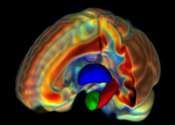Our brains process irony in emojis, words in the same way
That winky-face emoji that you use at the end of a text isn't just a fun picture added to your sentence. It can convey linguistic meaning that changes the interpretation of the sentence, a new study finds.
Sep 6, 2018
1
53









